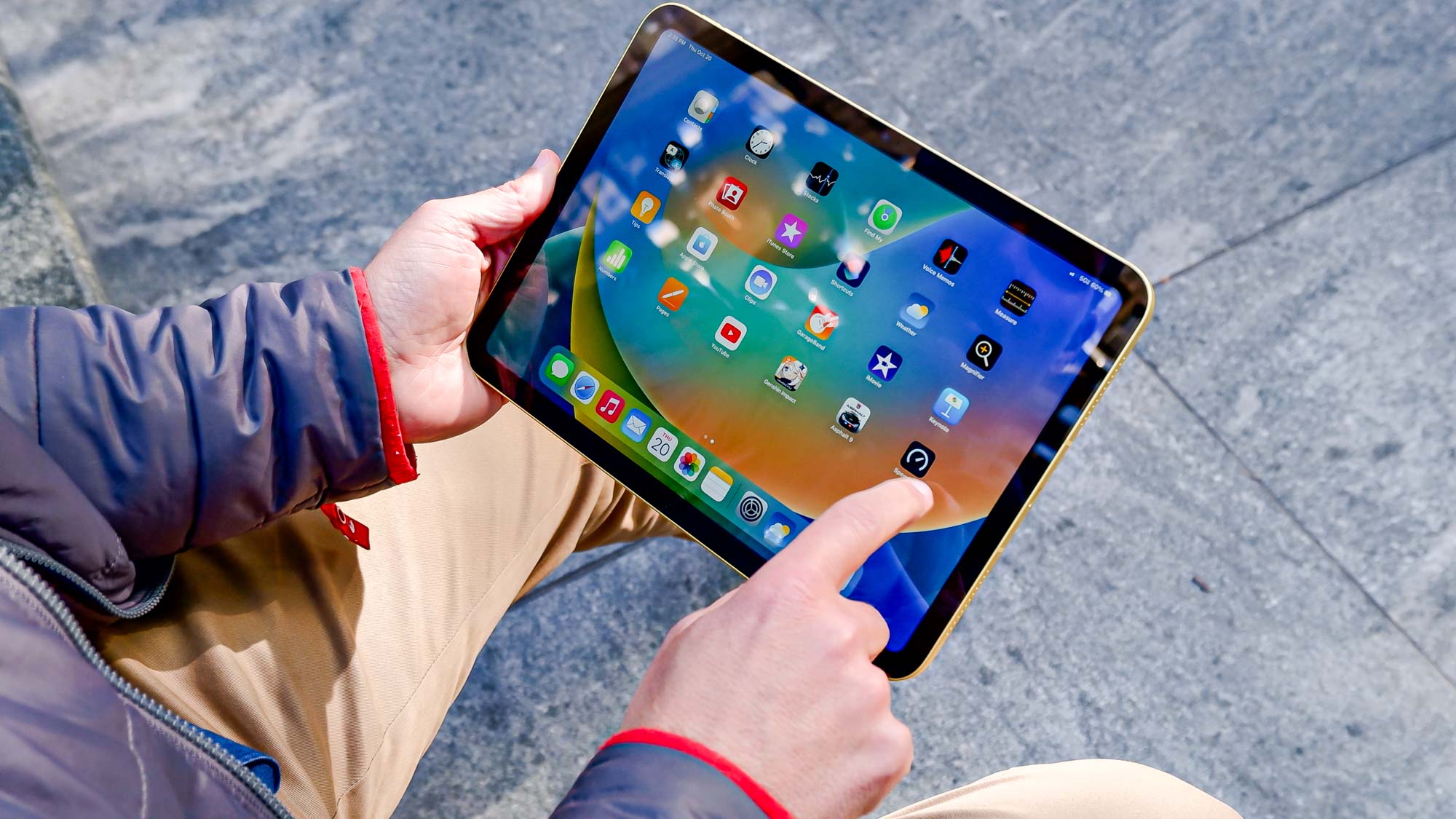Do you really need to pay for antivirus software?
Maybe the free antivirus programs are just as good

It's a free world out there on the internet. Free maps, free navigation, free voice calls, free email, free messaging, free apps — but should you trust your digital security to a free antivirus program?
For Windows users, some measure of security is needed on every computer. Malware, botnets, keyloggers and viruses are daily nuisances and constant threats, and that's why you need the best antivirus software you can get.
Antivirus software companies have certainly profited from this fact, but there are also plenty of free options, including free basic programs from the same developers that also offer for-pay packages.
On the free side are some solid and reputable antivirus programs for Windows machines. Avast Free Antivirus, Avira Free Antivirus, AVG AntiVirus Free, Bitdefender Antivirus Free Edition and Kaspersky Security Cloud Free are just a few.
Microsoft itself even builds very good antivirus software called Microsoft Defender Antivirus, also known as Windows Defender, right into Windows 10 and Windows 8.1. (Anyone still using Windows 7 or Windows Vista can download Microsoft Security Essentials, Defender's predecessor.) Like any paid program, Defender will scan your system for bad actors and keep a constant vigil on downloaded files.
There are dozens of paid antivirus programs from such well-known names as Bitdefender, McAfee, Norton and Kaspersky. Paid programs generally offer a slew of additional features, which can be helpful or overkill, depending on what kind of computer owner you are — cautious or geeky.
Avast's Premium Security package ($39.99 for one PC for one year), for example, has several features lacking in the company's free version, such as webcam protections to stop snoopers and a file shredder. It also opens suspicious programs in an "sandbox" environment so they don't infect your PC.
There are usually three levels of paid-subscription packages. Bitdefender, for example, has a $60 yearly subscription package (for three PCs) called Bitdefender Antivirus Plus. A step up is a $80 suite named Bitdefender Internet Security that adds parental controls, a two-way firewall and other features. But if you opt for the company's $90 Bitdefender Total Security package, you'll also get system performance checks and an anti-theft tool.
- The best parental control apps for iOS and Android
- Best cloud backup services
McAfee's Total Protection package ($120 yearly for 10 PCs) is another example of a complete package. It also includes parental controls, home-network security, a VPN and a password manager. It also lets owners encrypt particularly sensitive files to secure them in case a PC is stolen — ideal for laptop users.
Most of the more expensive packages bundle in antivirus software for other platforms, so you can get some of the best Mac antivirus software and the best Android antivirus apps at the same time.
The same, but different
In terms of performance in catching malware, what matters is the malware-detection "engine," not whether the program is free or paid. Most companies will use the same malware engine in their free and paid products, so Bitdefender Antivirus Free Edition should detect malware as well as Bitdefender Total Security.
Some paid programs will be better at detecting new threats, such as a website laced with newly created malware. Paid products, with their elaborate system-behavior monitors, are more likely to pick those up and to warn you about other possible dangers. But some free programs have that kind of "heuristic" monitoring as well.
Some users have complained about seeing more false warnings from free programs. There's a work-around for this, also free. When a suspicious file is tagged and you're not sure if it's safe to delete it, you can upload it to Virus Total (http://www.virustotal.com/), which will submit the suspect to scores of antivirus-engine interrogations and present you with results.
The primary differences between the free and pay products comes down to features — some of which can be extremely important — and ease of use.
Free programs generally offer no telephone technical support. This can be a deal-breaker for any small business, or a family with multiple computer users. Free programs don't, as a rule, offer parental controls that can keep kids off inappropriate sites or warn them about cyberstalking and bullying.
Free programs often also include advertising. This can be negligible, but ceaseless pop-up boxes pestering you to sign up for the paid version of whatever you're using can be quite distracting. Some free programs also try to change your web browser's home page and default search engine, which annoys us greatly.
In the you-get-what-you-pay-for category, the paid programs are sometimes easier to install and run and have fewer conflicts with other applications. You'll also find that should you lock down your system too tightly, it's easier with paid programs to select specific features and shut them off, or to set rules and behavioral exceptions.
The primary differences between free and paid anti-virus software, however, involve the additional features you get when you pay for a one-year license. There are the aforementioned parental controls, but you'll also find more elaborate firewalls to prevent intrusions, and performance and conflict scans for Windows PCs. The paid programs also look for suspicious behavior, such as a program attempting to access files it shouldn't.
In addition, McAfee's makers point out that most free programs do not rate or assess the legitimacy of websites or warn about the latest phishing scams.
Who needs what?
If you have a small business, one of the best internet security suites might be a better alternative. Technical support will prove essential should an employee or virus bring down your computers. Furthermore, features that allow you to block certain types of sites can keep employees from straying to begin with.
Parents may also consider buying a full-fledged program with parental controls. Not only can the additional controls be helpful, but the additional warnings about phishing can educate younger users. There are sometimes also home-networking features that can prevent freeloaders from using the family Wi-Fi.
For the rest of us, one of the better free packages, such as Kaspersky Security Cloud Free, may be sufficient. These are usually kept up-to-date with the latest virus signatures for scanning and monitoring, and their malware-scanning performance is comparable to their more expensive counterparts.
If you are diligent enough to download and install one of the best free antivirus programs, then you need to be more careful than most people when you're online.
You may not need the added protection a $50 or $80 program affords, but should also be the type of person who isn't likely to open links in strange emails or fall for false ads on malicious websites. In other words, you shouldn't be in much danger to begin with.
One last issue to consider, though, is that while you can often add other free software to cover other issues that paid antivirus software offers, such as parental controls, or use those that are built into some browsers, mixing and matching can quickly get complicated.
Whenever there's a conflict with another program or a warning about a possible security threat, it can be difficult to tell which of several products you may be using is causing the problem. Does a setting in the free Windows firewall protection need to be reset, or is there another program blocking the software you want to access on the Web?
Ultimately, if you do go the free route, don't just click on the first "free antivirus program" button you see, whether it's a pop-up ad or the result of a Google search. Those are often malicious programs looking to infect a PC. Stick with one of the applications mentioned in this story.
- The best Android antivirus apps
- The best Windows 10 antivirus
Sign up to get the BEST of Tom's Guide direct to your inbox.
Get instant access to breaking news, the hottest reviews, great deals and helpful tips.
John R. Quain has been reviewing and testing video and audio equipment for more than 20 years. For Tom's Guide, he has reviewed televisions, HDTV antennas, electric bikes, electric cars, as well as other outdoor equipment. He is currently a contributor to The New York Times and the CBS News television program.

